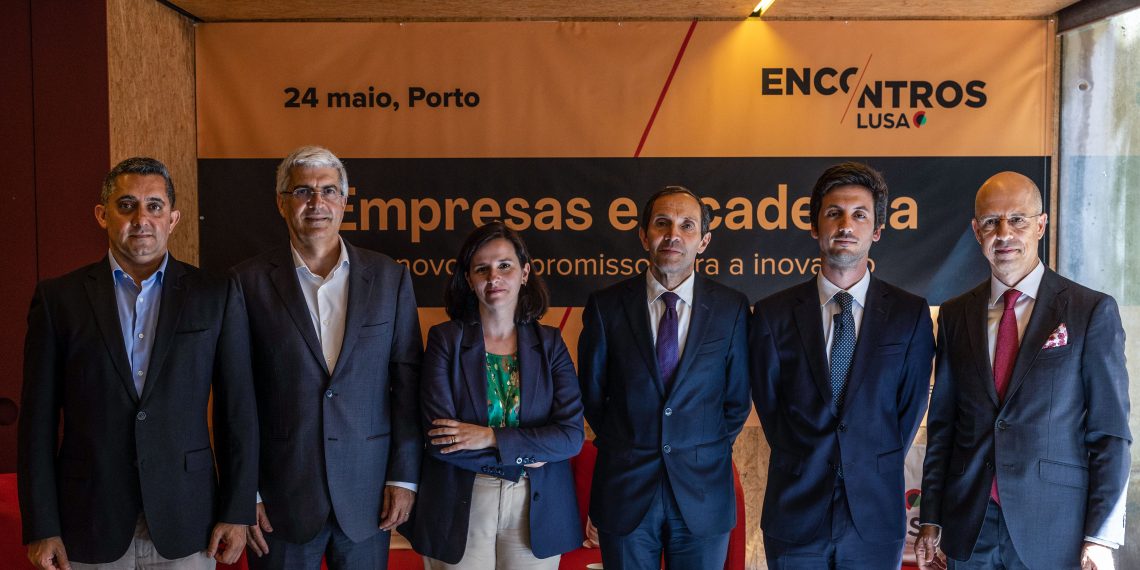What is the relationship between companies and universities? What path should Portugal follow to leverage innovation partnerships that boost industrialisation and growth? These were some of topics discussed during an event promoted by Agência Lusa and COTEC Portugal, featuring INESC TEC.
Reflecting on the relationship between academia and industry as a path to innovation was the theme of a panel featuring António Grilo, President of the National Innovation Agency (ANI), Clara Gouveia, researcher at INESC TEC Centre for Power and Energy Systems (CPES), and António Oliveira, Director of OLI.
From the evolution that has taken place in Portugal over the last few years, to the obstacles, challenges and incentives to innovation, the debate went through several issues, focusing on the importance of promoting public policies that boost innovation and strengthen the connection between the scientific and technological system and companies; the role of innovation as a differentiating factor, generating value and favouring internationalisation; the valorisation and capitalisation of research results, ensuring their transfer to the market, the continuity of projects and consortia; and the creation of mechanisms that allow the financing of technology testing and demonstration, facing the risks associated with the innovation process – particularly for the business ecosystem.
“This connection between academia and companies is part of INESC TEC mission and the way we operate. INESC TEC works in different areas, from fundamental knowledge, the development of solutions and their transfer to the market, to the creation of spin-offs and new embryonic companies”, explained Clara Gouveia, highlighting the institution’s cooperation with several entities, and the fact that it brings together multidisciplinary teams. “We explore different areas of knowledge working very closely together, which is an interesting aspect for companies”.
According to the researcher, there are, however, some challenges to this collaboration, e.g., valuing the results of research projects. In this sense, it’s important to value R&D results, which should not expire after a project’s conclusion, but rather continue within the scope of other initiatives or collaboration endeavours. It is also crucial to create innovation roadmaps, whose development should be inherent to business activity. “With an innovation roadmap, the companies can understand what they can explore, the value they can generate, and for how long, depending on funding mechanisms”, she said, also mentioning that this way, it will be easier to understand the impact of the projects and how to follow up on the results.
In this sense, and according to Clara Gouveia, “the promotion of debates like this one allows the dissemination of good practices and examples in business innovation, bringing to the same table the experiences of companies, academia and entities of the scientific and technological system”.
The conference was organised by Agência Lusa in partnership with COTEC Portugal; the event took place in late May. The session is available here.



 News, current topics, curiosities and so much more about INESC TEC and its community!
News, current topics, curiosities and so much more about INESC TEC and its community!